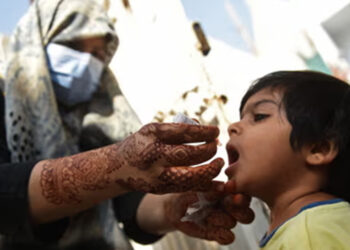The World Health Organization (WHO) has extended travel restrictions on Pakistan for an additional three months due to ongoing concerns over polio transmission.
This decision follows a thorough evaluation by the WHO Emergency Committee, which reviewed the international spread of poliovirus and Pakistan’s efforts to contain it.
The WHO expressed alarm over a significant rise in polio-positive environmental samples in Pakistan—reportedly increasing twelvefold between 2023 and 2024, with 628 samples testing positive. Newly affected districts have emerged, particularly in Khyber Pakhtunkhwa, Sindh, and Balochistan, which are currently battling the YB3A4A B-cluster strain of poliovirus.
Major urban centers including Karachi, Peshawar, and Quetta have become key transmission hubs for wild poliovirus type 1 (WPV1), which is now spreading further into central and southern regions of the country.
While WHO acknowledges improvements in Pakistan’s polio response, it urges intensified efforts, particularly at the provincial and district levels.
Despite some progress, Pakistan and Afghanistan remain the two countries posing the highest risk to global polio eradication, with confirmed instances of cross-border transmission.




































